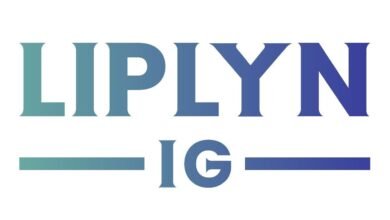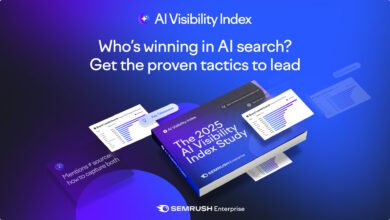AI Media Partnerships Boost Brand Visibility: Research

▼ Summary
– 82% of consumers find AI-powered search more helpful than traditional search engine results pages, according to a study by Search Engine Land and Fractl.
– Brand visibility in AI search depends on both subject matter expertise and brand mentions, yet only 7.2% of domains appear in both Google AI Overviews and LLMs.
– Google’s AI Overviews favor established, high-authority domains like news sites and educational platforms, while LLMs prioritize niche experts and publishers with deep topic coverage.
– Generative AI platforms value structured, machine-friendly content such as step-by-step guides and definition blocks, and trust is built through authoritative, well-sourced, and frequently crawled materials.
– To succeed in generative engine optimization, brands should focus on building authority through vertical expertise, structured content, syndication, and partnerships with trusted media networks.
Recent research reveals a significant shift in how consumers find information, with 82% of people reporting that AI-powered search tools provide more useful results than traditional search engine pages. This change is pushing marketers to adapt their strategies beyond conventional search engine optimization. While many are rushing to master generative engine optimization (GEO), the core principles of visibility remain unchanged: demonstrating deep expertise and earning widespread brand mentions. These elements create a digital authority footprint that both algorithms and AI systems recognize.
Many brands, however, focus narrowly on their own content hubs, answering common questions and addressing customer needs while overlooking the importance of offsite signals. Mentions across the web significantly boost visibility in generative AI search environments. A recent analysis of 8,090 keywords across 25 industries compared how often domains appeared in Google’s AI Overviews versus other large language models like GPT and Claude. The findings are striking: just 7.2% of domains showed up in both systems. Out of 22,410 unique domains identified, 15,848 appeared only in Google’s AI Overviews, 4,951 appeared only in LLMs, and a mere 1,611 domains were present in both.
This data highlights several important trends for marketers. Google’s AI Overviews continue to favor established, high-authority websites such as major news outlets, educational platforms like Reddit and YouTube, and official sources like government and university sites. In contrast, the domains exclusive to LLMs are often smaller and reflect what these models truly value: in-depth investigative journalism, niche vertical experts, and authoritative educational resources. Foundation models appear to prioritize publishers that offer detailed explanations and educational clarity over those that rely solely on traditional web authority metrics.
Based on this analysis, five key principles determine whether your content gets cited by AI platforms:
Authority builds trust within large language models. Content from sources with strong editorial standards and fact-checking processes gets crawled, linked, and reused more frequently. This repeated exposure makes their phrasing the default language models adopt. To benefit, publish well-sourced, professionally edited content, earn links from reputable news outlets, and keep your material updated to encourage recrawling.
Machine-friendly content is easier for AI to process. Models recognize and prefer structured information such as step-by-step guides, definition blocks, numbered lists, and comparison tables. Standardize your article formats and use clear headings, schema markup, bullet points, and concise summaries to make your content more accessible to AI systems.
Niche expertise helps train AI mental models. Specialists in specific fields—like Edmunds for automotive information or Mayo Clinic for health—produce highly detailed, structured updates that teach AI where to find reliable answers on particular topics. Establish your brand as the definitive knowledge source in your industry by creating comprehensive, structured content and pitching your experts to media outlets.
Repetition and syndication create statistical influence. When content gets picked up by syndication networks or widely reprinted, its wording and framing become ingrained in AI training data. A single Associated Press story, for example, can spawn hundreds of local versions, embedding that language across the web. Target syndication channels and provide reusable assets like charts and embeddable data to amplify your reach.
U.S. commercial bias currently shapes AI knowledge. Training data over-represents U.S. English content from ad-supported and commercial publishers, which can lead to culturally narrow responses. To counter this, seek media mentions within the publisher networks that AI platforms use for training.
Beyond content strategy, media partnerships play a crucial role in shaping how AI models perceive brands. Licensing agreements between AI companies and major publishers affect three key areas: the depth and recency of content AI can access, how often that content appears in training data, and the credibility weight assigned to it during answer generation. When a publisher becomes an AI partner, its content turns into a trusted reference within the model’s knowledge map, making it more likely to be cited in AI-generated answers.
As generative AI continues to evolve, not all platforms will maintain their influence. While user-generated content sites like Reddit and Quora are frequently cited today, their vulnerability to inaccuracies and low verifiability may reduce their long-term credibility. Brands that invest in authoritative, human-authored, and legally clear content are better positioned to remain influential as AI systems increasingly prioritize trustworthy sources.
Looking ahead to 2026, dominating generative engine optimization will require building cross-channel authority rather than chasing individual rankings. Successful brands will focus on owning their niche, structuring content for machine readability, leveraging syndication to increase mentions, securing placements within trusted media networks, localizing for global reach, and prioritizing credibility through transparent sourcing and expert contributions. In the new search landscape, credibility has become the essential ranking factor, and those who build a strong digital authority footprint now will be the trusted sources AI turns to in the future.
(Source: Search Engine Land)





